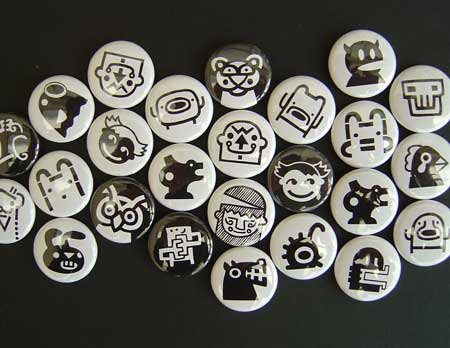This post is a bit behaviouristic oriented to keep it simple. Simplified; to stimulate behaviour you can follow it up with a reward, and if you want to discourage behaviour you can deliver punishment to an actor. One condition is to deliver the reward or punishment directly after the behaviour it is contingent to.
Rewards: Positive Reinforcement;
I'll give you Money if you do x
This is one of the most familiar forms of reinforcement in games, rewarding good behaviour. Achievements, unlockables, points, item rewards, temporary boosts are almost always contingent to behaviour desired within a game. Most of the time these rewards are also used to make taking risks more interesting like the bonus point fruits in Pac-Man.Still the most common mistake is not clarifying to a player how they can increase their reward.
Rewards: Negative Reinforcement;
I'll take your money till you do x
I never quite know why this is considered a reward, because basically you start with a reward but it diminishes before you perform a certain action. I don't recall this reward being used a lot in games, there must be some time trial fun hiding in this form of reinforcement.
Punishment: Positive Punishment;
I will take your Money if you do x
This is the most straightforward form of punishment, obey the rules or be punished. If you're not shooting people in shooters, your punishment is digital death. If you pickpocket someone with witnesses, you'll be fined in some rpg's like Skyrim. Ofcourse there are other forms of punishment like the loss of money after losing a pokemon battle : ( In the end punishment also got to be contingent to behaviour, and clear. Even though you lose half your money if you lose a pokemon battle, the punishment is not clearly visualised and the contingency remains unclear.
Punishment: Negative Punishment;
I will not give you money if you do x
This is a fleeting punishment and even seems like a reward with prerequisite. You are promised a reward, but won't get it if you perform a forbidden action. In certain stealth games you might lose the reward for your mission if detected. In an RPG you might break a piece of important armor to be looted from a boss if you are careless in battle. But in the end this form of punishment is not implemented a lot (or is it?).
Well next time I might combine these forms of behaviour reinforcements or speculate on their relation to intrinsic motivation. Game on.
Literature:
http://psychology.about.com/od/behavioralpsychology/a/introopcond.htm


